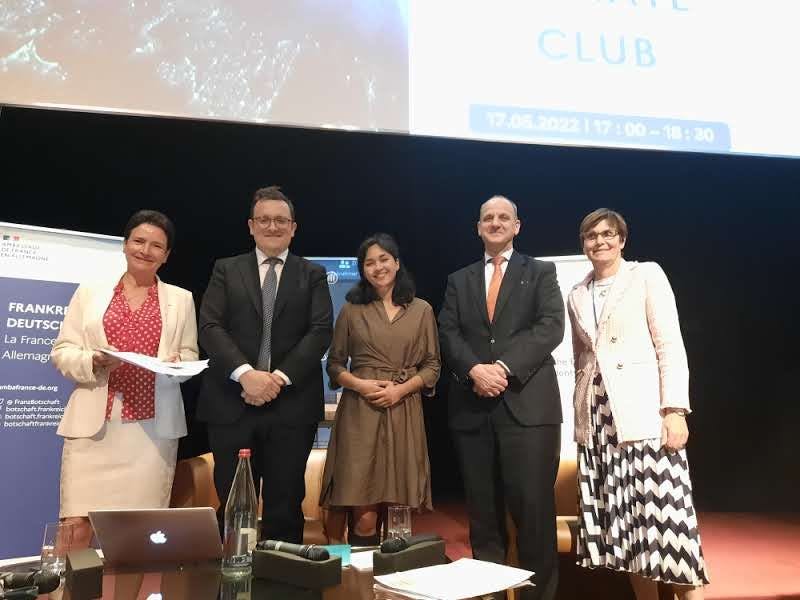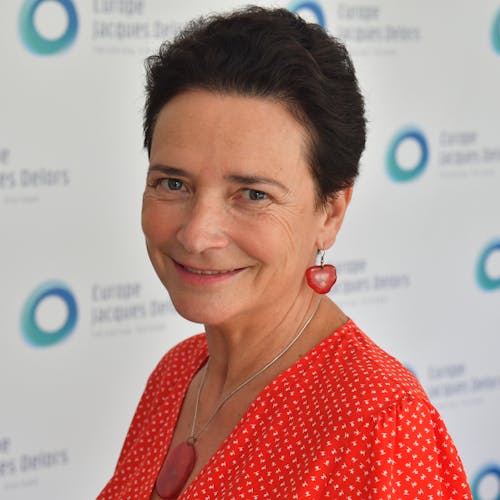Franco-German panel discussion: CBAM Meets Climate Club
On 17 May, SER Berlin and Allianz organised a hybrid conference at the French Embassy on the articulation of the border carbon adjustment mechanism, one of the priorities of the French Presidency of the EU, with the Climate Club promoted by Germany in the framework of its G7 Presidency.
This conference, moderated by Ludovic Subran, Chief Economist of Allianz, enabled the convergence between the French and German visions on the eve of the G7 Finance Summit in Bonn and Königswinter, first and foremost the urgency of effective protection against carbon leakage in order to achieve the climate objectives of the Paris Agreement. She did not avoid the points of vigilance mentioned by Aylin Shawkat of the think-tank Agora Energiewende. Questions about the pace of the abolition of free quotas, the competitiveness of companies exporting outside the common market, compliance with WTO rules and the reallocation of the resources generated were at the heart of the discussions.
Geneviève Pons, Director General of Europe Jacques Delors, and Holger Fabig, Head of Multilateral Financial Affairs - G7/G20 at the Federal Ministry of Finance, discussed the issues and links between CBAM and the Climate Club in a very open manner with the audience. The speakers considered that the Climate Club could be a tool to address the need for enhanced international cooperation linked to the introduction of the European MACF, with a view to ensuring its acceptability to trading partners. They considered that the Climate Club should be open, without exclusivity, to countries that share a high level of climate ambition, and should promote tools for the comparability of climate policies, and support industrial transformation through the dissemination of best practices, including to the least developed countries.


